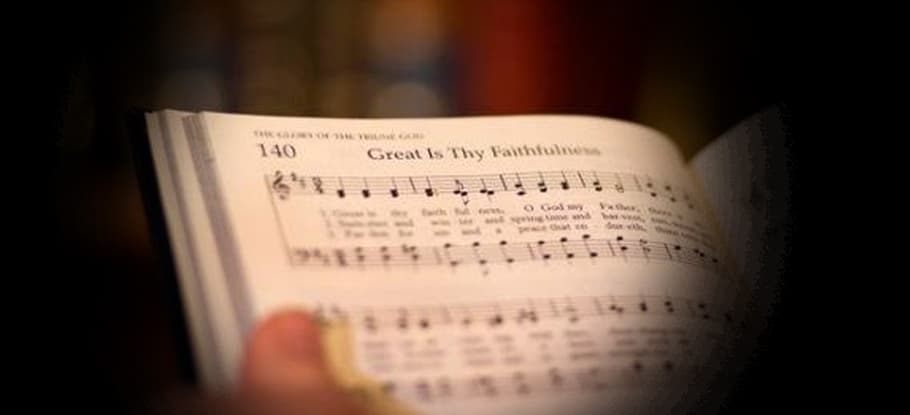One of the great ways we’re called to worship God is by singing. All through the Old Testament, we find passages where God’s people are called to sing to the LORD. In Psalm 9:11, we find these words, “Sing praises to the LORD, who sits enthroned in Zion! Tell among the peoples his deeds!” It’s a common theme through the Psalms. In Psalm 30:4, we find this call to worship, “Sing praises to the LORD, O you his saints, and give thanks to his holy name.”
As a gathered church, we should engage in the singing of psalms, hymns, and spiritual songs as we make melody in our hearts to the Lord. Since we have hundreds of great hymns and spiritual songs for worship that are filled with great theology, we should engage our mind and heart in the song during our worship. As we sing, it should be that the theology of the song is what produces joy in our hearts—not the arrangement or the skill of the vocalist who is leading. How often do you miss the theology of the song you’re singing?
When John Newton penned his famous “Amazing Grace”—he wrote, “Amazing grace! how sweet the sound, that saved a wretch; like me! I once was lost, but now am found, was blind, but now I see.” Although this is a familiar line to us, we must not miss the theology. Newton was pointing out the absolute inability of man to come to God on his own. Newton understood God’s marvelous grace and he put it on display in his song. Don’t miss this truth. We cannot move ourselves to God on our own—we are lost and helpless, and it’s God who comes to us.
Consider the words to the great hymn penned by Thomas O. Chisholm “Great Is Thy Faithfulness.” In that first verse, he writes, “Great is Thy faithfulness, O God, my Father; There is no shadow of turning with Thee. Thou changest not, Thy compassions, they fail not; As Thou hast been, Thou forever wilt be.” This is the grand doctrine of God’s immutability. Although a clunky theological term, the immutability of God means that he never changes. He is the same yesterday, today, and forever. As we sing this wonderful hymn, we must engage our mind and consider the never changing always faithful God who rules the entire universe.
In the song, “Come Thou Fount of Every Blessing” we find the following words:
Jesus sought me when a stranger
Wandering from the fold of God
He, to rescue me from danger
Interposed His precious blood”
The author of the hymn, Robert Robinson, was pointing to the fact that we were wandering away from God. We are not seekers who are looking for God. We are not spiritually sick people who are seeking after God. The Bible is clear, there is no one who seeks after God (Rom. 3:10). The theological point is that Jesus sought us and found us and he interposed his blood in our place (substitutionary atonement). Jesus was the propitiation for our sins (1 John 2:1-2). It was Jesus who pleased God and satisfied holy justice in our place. We must engage our minds and understand what it is that we’re singing as we worship.
When we turn our worship services into entertainment platforms for bands and vocalists to perform we miss the point and opportunity of corporate worship. We are not gathered for entertainment nor should we select songs for that purpose. Charles Spurgeon, in the Sword and The Trowel, once wrote these words to song leaders:
O sweet singer of Israel, remember that the song is not for your glory, but for the honour of the Lord, who inhabiteth the praises of Israel; therefore, select not anthems and tunes in which your skilfulness will be manifest, but such as will aid the people to magnify the Lord with their thanksgivings (June 1, 1870. 276-277).
Far too often people choose churches where they can find their kind of music performed in a way that makes them feel good. Worship is not for us to have a certain feeling or for a vocalist to give us goosebumps. We are not judges of performances. We are worshippers of God. If we are allowing bands and vocalists to perform and if we’re all caught up in the frenzy of our feelings—we will likely turn a blind eye to the theology of the songs within corporate worship. Before long, the church will be singing words that are so shallow they could be inserted into a Country song and performed in Nashville. Even worse is when the songs are arranged well and the congregation enjoys singing them, but they’re filled with incorrect theology about God.
Singing to God is about praising God first, but it also serves to teach us about God—especially the little ones who are with us in the worship services. Remember, words matter, songs matter, worship matters, and as we sing—we must labor to not miss the theology of the song.




